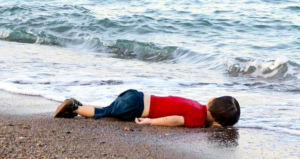Book review
Seeking Refuge (2016)
Authors:
- Stephen Bauman
- Matthew Soerens
- Issam Smeir
Opening with the story of Alan Kurdi (the dead three-year-old Syrian refugee found on a Turkish beach in September of 2015) “Seeking Refuge” is an analysis of the ongoing, and ever-growing global refugee crisis. The authors are all involved with the nonprofit efforts of World Relief- a church based humanitarian organization serving vulnerable people. Stephan Bauman originally left his comfortable home in Wisconsin to serve alongside his wife as a six month missionary in Africa. He now serves as President of World Relief. Matthew Soerens was also Wisconsin raised, and has been working with World Relief ever since first being introduced to the organization in college. Dr. Issam Smeir was born in Jordan, and grew up sur rounded by war and violence, and was accustomed to hosting Lebanese refugees in his family home. He joined World Relief after coming to America to study psychology, and now travels with their several of their partner churches.
The novel quickly covers many of the important technicalities surrounding refugee aid. Beginning with an explanation of what it means to be a Christian aid worker in the west- and what circumstances they believe call for religious aid action. They establish that World Relief strictly promotes evangelical assistance (an invitation to accept Jesus) rather than proselytism (forced conversion). They explain that the message of world relief, and the belief held by the authors is in short- to love thy neighbor as one loves thy self, including refugees. They conclude the first chapter by stating:
“Our core conviction is that the church is God’s solution to this unprecedented global crisis, and it requires us to rise up and respond in mission-driven, fact-based ways to this tremendous crisis.”
The following chapters then detail distinctions between refugees, displaced persons, and illegal immigrants. They provide legal definition alongside biblical interpretation. Filled with graphs and charts, the novel is backed by extensive research and documentation for the arguments made throughout. The authors pose many questions surrounding what it means to be a Christian, and what duties accompany that faith. They also pose the question of to what extent are people truly “vulnerable”. In essence they ask: who deserves help, and how should it be provided? They provide what answers they can, using both legal technicality and scripture.
Using lessons from class:
Because this book analyzes humanitarian aid from a primarily biblical approach rather than sociological, it is difficult to do otherwise. Many of the questions they ask/topics they cover are more specifically oriented faith-following persons. Several chapters begin with scenarios involving a Christian citizen who is concerned for some reason or other and doesn’t know whether to follow the law or their faith. The authors work to explain as best possible in what ways the law does or doesn’t apply, and what they think Christ wishes for us to do. The way that the information is presented doesn’t necessarily ask for direction, but rather explains in which direction Christian aid workers should go.
Personal Gain:
After reading “Seeking Refuge” I gained a lot of Christian missionaries, due to the dedication to determining what is right. I have had some bad experiences with churches, and I am often quickly turned away by such prominently Christian organizations. But I feel as though these authors at the very least, question not only what to do as religious aid workers, but also in what context their religion applies and I think that is really important. I have now more faith in religious aid than I did previously.
Below is the summary provided by the publication company: Moody Publishing
What will rule our hearts: fear or compassion?
We can’t ignore the refugee crisis—arguably the greatest geo-political issue of our time—but how do we even begin to respond to something so massive and complex?
In Seeking Refuge, three experts from World Relief, a global organization serving refugees, offer a practical, well-rounded, well-researched guide to the issue.
- Who are refugees and other displaced peoples?
- What are the real risks and benefits of receiving them?
- How do we balance compassion and security?
Drawing from history, public policy, psychology, many personal stories, and their own unique Christian worldview, the authors offer a nuanced and compelling portrayal of the plight of refugees and the extraordinary opportunity we have to love our neighbors as ourselves.
(also attached is the viral picture of Alan Kurdi)

